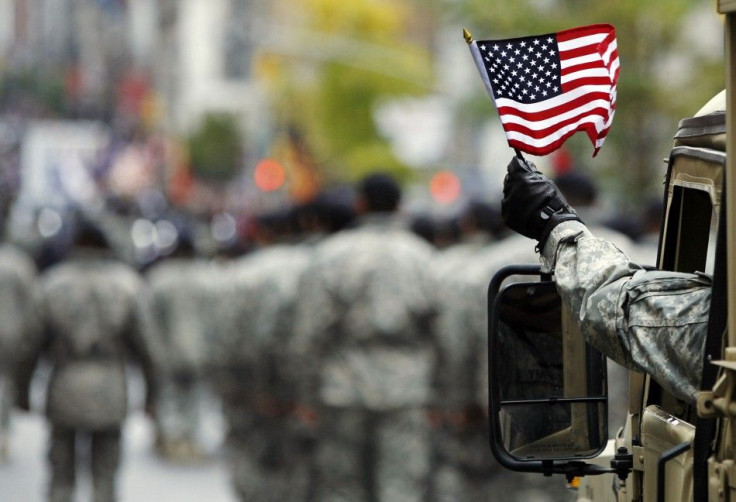Veterans Day 2011: Holiday's History Deepens its Meaning

For many Americans, Veterans Day means little more than a day off work or a day to watch Saving Private Ryan and fly a flag in front of their home.
But Veterans Day has a long history and its meaning goes much deeper than such gestures. The impetus for celebrating each year on Nov. 11 arrived on Armistice Day, the day World War I fighting ended in 1918. In 1938, the day was enshrined by the U.S. Congress as a day dedicated to world peace in honor of World War I veterans.
Veterans Day 2011 is particularly symbolic and meaningful, as the Armistice -- the cease-fire between the Allied nations and Germany -- went into effect on the eleventh hour of the eleventh day of the eleventh month of 1918. This year marks the first 11-11-11 to be celebrated as Veterans Day. It will be 100 years before such a date arrives again.
But by 1954, the U.S. military had been involved in two other major conflicts -- World War II and the Korean War -- and on June 1 of that year Congress amended the law to change the name of the Nov. 11 holiday from Armistice Day to Veterans Day, in order to ensure that all service members past and present were honored for serving their country.
On Oct. 8 of that year President Dwight D. Eisenhower issued the first Veterans Day Proclamation, starring an annual practice. Eisenhower called on the populace to come together to honor veterans: In order to insure proper and widespread observance of this anniversary, all veterans, all veterans' organizations, and the entire citizenry will wish to join hands in the common purpose.
Veterans Day was officially moved to the fourth Monday of October in 1968, but many states chose not to change the original date, and in 1975 Veterans Day was moved back to its initial Nov. 11 date, and it has stayed as such ever since.
Veterans Day has a distinctly different meaning from Memorial Day, which is celebrated the last Monday in May. Memorial Day is a more somber occasion, as it is an opportunity to reflect on and give thanks for all the men and women who have died in the line of duty. All members of the U.S. military are celebrated for serving their country on Veterans Day, including those who did not see combat.
Veterans Day is an intensely patriotic occasion, but it is not a solely American phenomenon. Canada and Australia observe Remembrance Day each Nov. 11, and Great Britain has its own Remembrance Day on the Sunday nearest Nov. 11 each year.
In the end, as the U.S. Department of Veterans Affairs explains on its Web site, Veterans Day's history is directly linked to its remembrance today: The restoration of the observance of Veterans Day to Nov. 11 not only preserves the historical significance of the date, but helps focus attention on the important purpose of Veterans Day: A celebration to honor America's veterans for their patriotism, love of country, and willingness to serve and sacrifice for the common good.
© Copyright IBTimes 2025. All rights reserved.





















